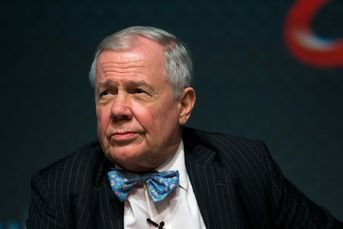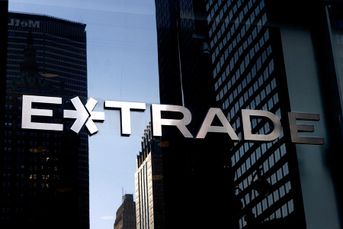Will the fiduciary rule shrink the ever-expanding world of share classes?
While T shares and clean shares are different, they could solve important pricing questions for the fund industry — and even obliterate many share classes.
First there was little share class A. Then there were little share classes B and C. Faster than you could say, “The Cat in the Hat,” there were little share classes I, N, K, F and Y. Now the fund industry is contemplating unleashing an estimated 3,500 new T shares and “clean” shares — variously called F3 shares by American Funds and P shares by Janus Capital Group.
Unlike many previous share classes, which were meant to appeal primarily to those who sell them, T shares and clean shares are designed to fit the requirements of the Department of Labor’s proposed fiduciary rule, which requires advisers to act in a retirement account client’s best interests. While T shares and clean shares are different, they could solve important pricing questions for the fund industry — and even shrink the industry’s enormous number of share classes.
But the industry is waiting for a final DOL fiduciary rule — and possibly a matching one from the Securities and Exchange Commission — before changing its fee structures. To make matters more complex, it is waiting for new rules from an administration that was elected on a platform of reducing federal regulations.
T shares charge the same commission for all asset classes. Traditionally, stock funds charge higher sales charges, or loads, than bond funds. In theory, that differential could create an incentive for unscrupulous advisers to stuff stock funds in a client’s portfolio.
The DOL rule doesn’t forbid charging sales fees, said Aron Szapiro, director of policy research at Morningstar Inc. It simply seeks to remove incentives for brokers to choose a fund with a higher sales charge over another with a lower load — in this case, equity over fixed-income funds.
(More: Opponents of DOL fiduciary rule want SEC to modify suitability standard)
Fund companies aren’t allowed to agree on what, exactly, the proper load for a T share is; that would be price fixing. The industry seems to be coalescing around 2.5% for T share loads, and most will have a 0.25% 12b-1 fee. “They also do away with many of the additional payments to distributors,” Mr. Szapiro said. More than 30 companies offer T shares, including BlackRock and Morgan Stanley, and about 20 more have filed to offer them.
LOAD LEVEL
The size of the load a distributor can charge on T shares will vary according to the prospectus. Rather than issuing, say, separate share classes for advisory companies that want a 2.5% load and those that charge a 3% load, the prospectus will specify which companies charge what level of load. “If you want to answer the question ‘What is the sales load?” you’d have to ask the distributor,” said Mr. Szapiro.
Clean shares are a different proposition. Essentially, they strip away any distribution costs and allow advisers to levy a separate fee for their services. They are modeled on shares sold in Britain after sales commissions on mutual funds were outlawed. So far, American Funds, Janus and Columbia Threadneedle are the only companies to issue clean shares.
Other fund companies haven’t rushed to follow. “We are still evaluating a clean share class as several of our clients have asked for it, regardless of the fate of the DOL rule, to be used in their advisory accounts and possibly for use in conjunction with the recent SEC 22d clarification response to the American Funds letter,” said Franklin Templeton spokesperson Lisa Gallegos.
(More: Expect a spring torrent of new mutual fund share classes)
“We’re not doing anything different — we’ll have regular old dirty shares,” said David Booth, executive chairman of Dimensional Fund Advisors. “We’re not creating any new shares; we don’t engage in revenue sharing; we have no heavy lifting to do. We try to eliminate as many conflicts of interest as possible. We don’t pay advisers, and we don’t pay commissions for selling funds.”
Fidelity Investments doesn’t offer clean shares, nor does it have any current plans to, the company said. Neither does American Century or Putnam Investments, among the largest load-fund complexes in the country. “Everyone is in wait-and-see mode,” Mr. Szapiro said. And, he said, filings for T shares have fallen off recently, as the future of the fiduciary rule remains in question.
“Before engaging in the expensive process of launching new share classes or modifying existing share classes, many Investment Company Institute members are awaiting more certainty about the DOL fiduciary rule and assessing their plans, based in part on input from their distribution partners,” said Marty Burns, the trade group’s chief industry operations officer. “Specifically, they would like to know the DOL’s decision about revising or rescinding the rule, following President Trump’s directive.”
Should both the DOL and the SEC produce sweeping fiduciary rules, one immediate result would be a reduction in the number of share classes. American Funds, for example, currently offers more than a dozen share classes on each of its funds. According to the ICI, the fund industry sports 25,038 share classes representing 8,116 funds. But in a fiduciary world, A shares would go away.
“T shares kill A shares,” said Paul Ellenbogen, head of global regulatory solutions at Morningstar. “And it’s possible clean shares kill everything.”
This development would not be particularly offensive to money managers, who privately complain about the amounts they pay for distribution. Asset managers send part of their management fees for shelf space on platforms like those offered by Schwab and Fidelity.
Much of the money from 12b-1 fees — which were never intended to pay advisers or commissions — typically go in and then out of their hands. “Asset managers would be delighted to just manage money,” Mr. Ellenbogen said. “After a few drinks they’ll complain that they subsidize the broker-dealer industry.”
A world of clean shares, with funds paid nothing for distribution, would also make no-transaction-fee brokerage platforms less viable. Typically, asset managers pay a portion of their fee to NTF platforms. Under the fiduciary rule, that might have to be done as a separate charge — meaning investors might see a cost for trading on those platforms. “They might become like Costco,” Mr. Ellenbogen said. “You get low prices per trade, or you pay a membership fee.”
SEPARATION OF COSTS
It may be that the tide of investor sentiment is flowing naturally toward a separation of distribution costs and asset management, and that ultimately, level-load and clean shares will become the industry norm, just as load and no-load funds did in the last century.
The success of Vanguard and DFA certainly indicates that investors favor putting some share classes back in the mutual fund hat — and saving money. In the past 12 months, Vanguard has seen inflows of $205 billion and DFA has seen inflows of $24 billion, according to Morningstar.
“The way we have structured things, it’s easy to buy and sell our funds, and no one gets special deals that others don’t get in terms of fees,” Mr. Booth said. “The net beneficiary is the end client.”
Learn more about reprints and licensing for this article.








